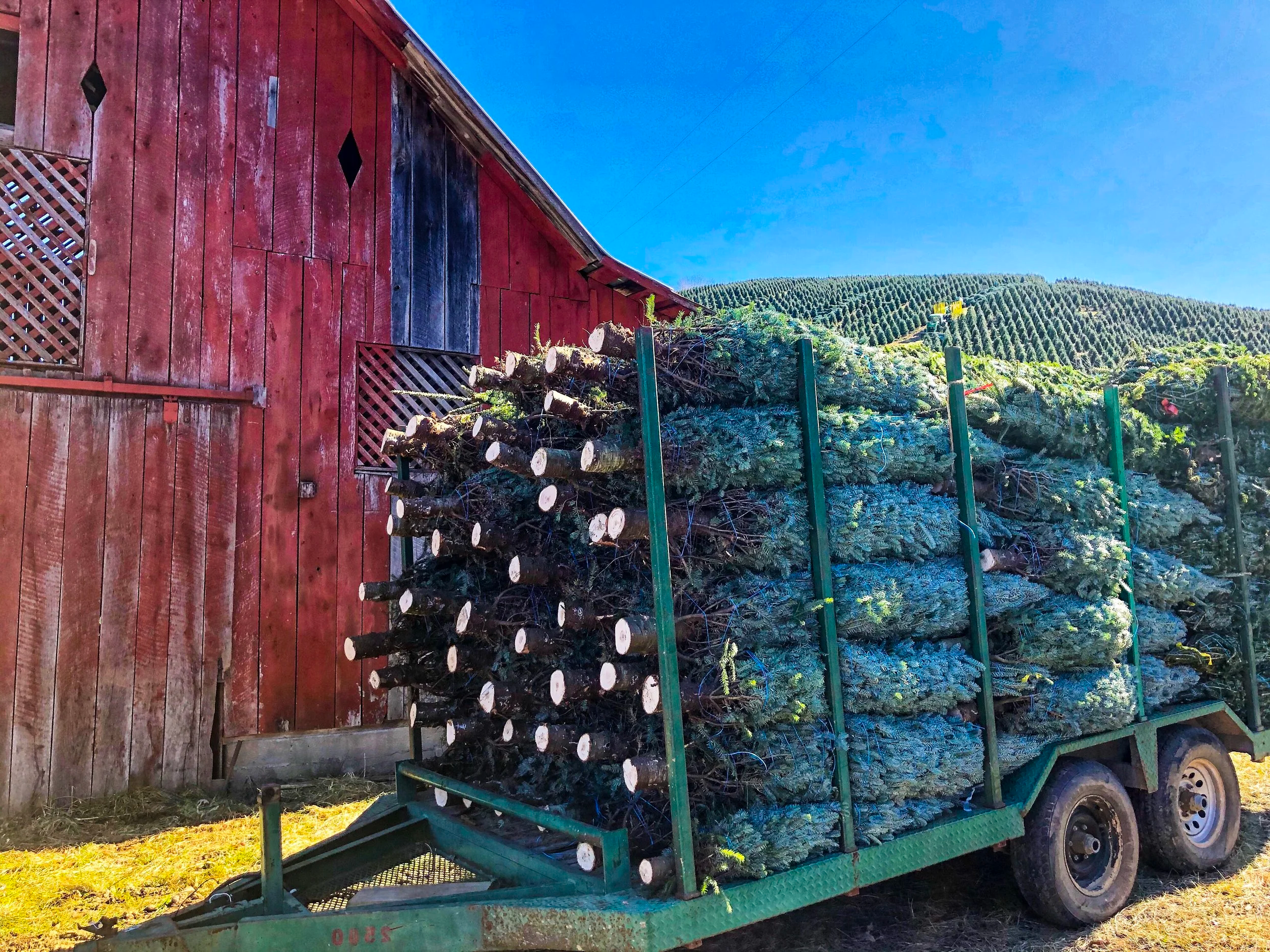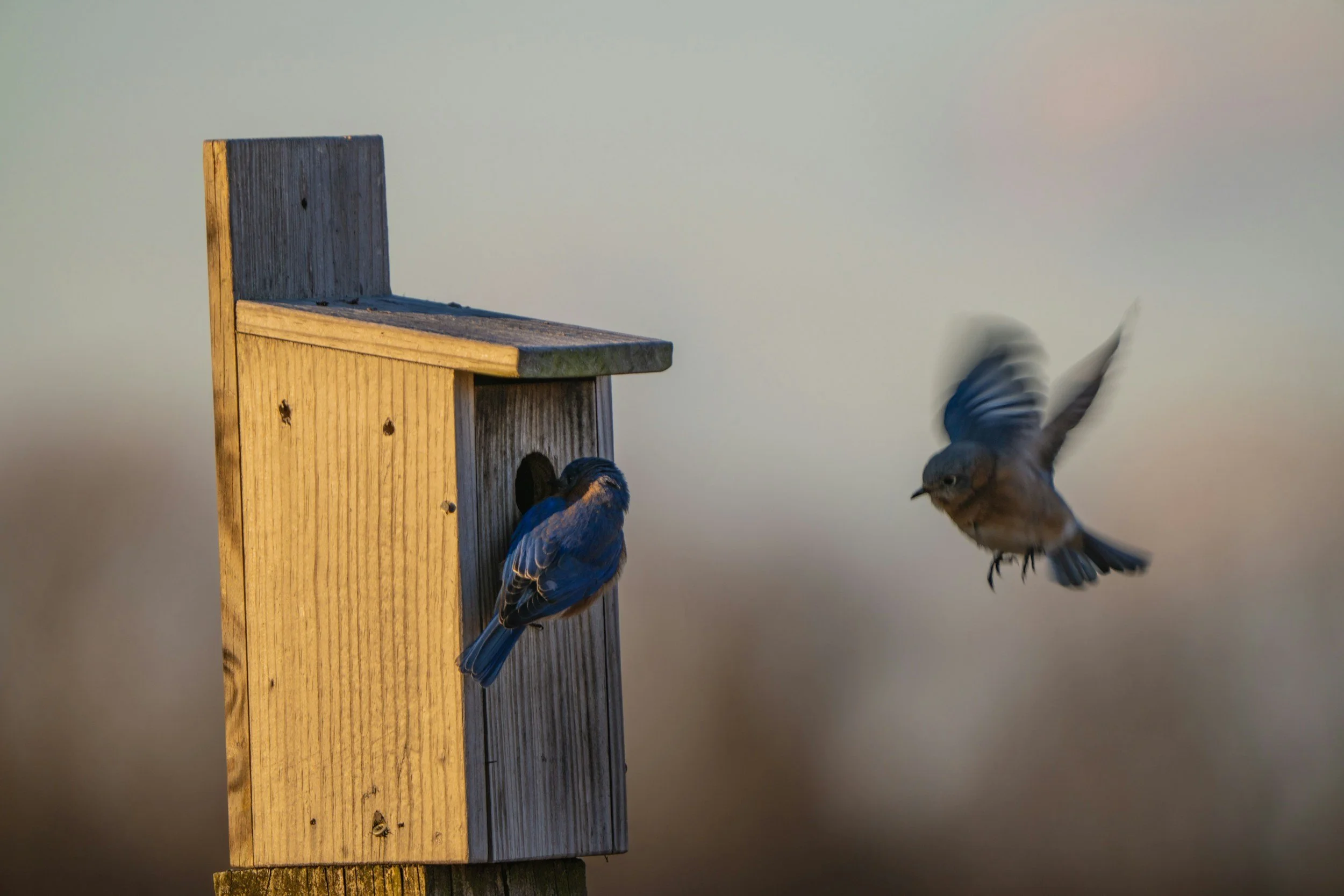
Go Green with a
Real Christmas Tree
A Tradition Rooted in Stewardship
At Hart-T-Tree Farms, we live and work on the same land where our trees grow. We walk among them every day, and the soil, water, and wildlife around us are part of our family’s story. That’s why we believe responsible farming and environmental stewardship go hand in hand.
Choosing a real Christmas tree is one of the simplest ways to celebrate the season sustainably — supporting clean air, wildlife habitat, and working farms that keep our mountain landscapes green year-round.
Why Real Trees Are a Greener Choice
Every real Christmas tree:
Absorbs carbon dioxide and produces oxygen as it grows
Stabilizes soil and prevents erosion on mountain slopes
Provides habitat for birds, pollinators, and countless small animals
Supports local family farms and rural mountain communities
Is 100% biodegradable and recyclable after the holidays
For every tree harvested, growers plant one to three new seedlings, keeping the cycle of renewal going for generations.
And unlike artificial trees made overseas from non-renewable plastics, real trees are a renewable crop — grown right here in North Carolina, not mined, manufactured, or shipped across oceans.
Responsible Farming Practices
Our family follows a science-based approach known as Integrated Pest Management (IPM) — a system developed with North Carolina State University Extension to keep trees healthy while minimizing environmental impact.
That means:
Monitoring and prevention first — we scout for pests and weeds before taking action.
Cultural and mechanical controls — mowing, pruning, and managing plant diversity to reduce pest pressure.
Only treating when necessary — and only with products approved for Christmas tree production in North Carolina.
Responsible, low-spray methods — targeted, minimal applications made by trained and licensed professionals using the lowest effective rates.
Careful timing — treatments are planned to protect pollinators, soil life, and surrounding waterways.
Because we farm many acres of Fraser fir across mountain terrain, it’s not realistic to grow trees entirely without some form of pest control at some point in their life cycle. But our commitment is clear: we use the least amount possible, applied responsibly, to maintain both healthy trees and a healthy environment.
When chemical treatments are needed, they are:
Applied only by trained, licensed applicators who follow all North Carolina Department of Agriculture regulations
Documented, measured, and reviewed for accuracy and environmental safety
Conducted with specialized equipment that minimizes drift and protects nearby ecosystems
We take these responsibilities seriously — because this land is our home, too.

Stewardship That Lasts
Our farm sits on land that’s been in agricultural use for generations. By growing trees, we keep that land green and productive, preventing it from being developed. We replant every acre we harvest and continually invest in practices that improve soil health, reduce erosion, and protect nearby streams.
We believe a beautiful Christmas tree should never come at the expense of the environment — and with thoughtful management, it doesn’t have to.
What You Can Do
Choose a real tree from a local North Carolina grower — your purchase supports sustainable farmland and mountain communities.
Recycle your tree after the holidays; many communities use them for mulch or shoreline restoration.
Ask questions — and know that transparency builds trust. Most farms, like ours, are proud to share their growing practices.
If you want a tree that has never received any pesticide treatments, seek out a very small farm that manages only a limited number of trees with fully manual or organic methods. For most larger farms, responsible IPM is the most sustainable path forward.

Rooted in Responsibility
We’re proud to be part of a community of North Carolina growers who balance tradition, science, and stewardship — ensuring that the simple joy of a real Christmas tree remains a gift to both your family and the land it came from.
Healthy Trees. Healthy Land. Happy Holidays.
Local News Alert
Long Term Study from Appalachian State University finds no negative impact on Eastern bluebird population living in Christmas trees.
Research, industry updates highlight NC Christmas Tree Association meeting
WATAUGA — Christmas tree growers from across Western North Carolina gathered recently at Clawson Christmas Tree Farm in Watauga County for the industry’s summer meeting, an event held every year in the county’s major tree-producing areas.
One highlight of the Clawson Farm stop was a presentation by Dr. Lynn Siefferman, professor of biology at Appalachian State University, who has been conducting a long-term study on Eastern bluebirds and other cavity-nesting species at the farm.
Siefferman has monitored over 350 bird boxes, with more than 60 nest boxes on the property, tracking reproductive success, survival and potential impacts from pesticide use.
“We have never been able to document any negative effects on the reproductive success of the birds,” she told attendees. “We haven’t seen differences in growth rates, immune function, stress hormone levels or adult survival between birds living on Christmas tree farms.”
Siefferman also discussed a range of topics in her research, including the benefits of bird boxes for farmers and the impacts parasites have on birds.
Farm owner Joey Clawson said the results are encouraging.
“All these years with what I’ve been using, they’ve never found any negative impact on the birds,” he said. “We can get so many negative attitudes from the population in the High Country, but from what she’s found, there’s no negative impact for the birds, which is good news for the Christmas Tree industry.”
Other presentations at Clawson’s included a presentation on herbicides and the reestablishment of ground cover by drone frost seeding.
Read the full article here.




